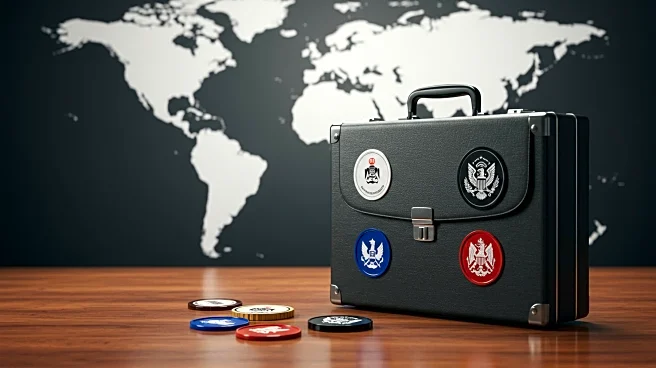What's Happening?
Representative Robert Garcia, a key Democrat on the House Oversight Committee, is seeking clarification from the Trump administration regarding a reported agreement with El Salvador's President Nayib Bukele. The deal involves sending several MS-13 gang leaders held in the United States back to El Salvador. Garcia's inquiry stems from concerns that this arrangement may have compromised ongoing investigations and U.S. national security. The MS-13 leaders are implicated in significant federal cases in New York, described as the most comprehensive indictments against the gang's command structure in U.S. history. Garcia's letter questions whether the Trump administration facilitated the repatriation of these leaders to prevent them from cooperating with American prosecutors.
Why It's Important?
The potential implications of this deal are significant for U.S. national security and the integrity of the justice system. If the Trump administration's actions were intended to prevent cooperation with U.S. prosecutors, it could undermine efforts to dismantle MS-13, a notorious criminal organization. Additionally, the deal raises concerns about the influence of foreign policy considerations on domestic legal proceedings. The situation also highlights the complex interplay between immigration policies and international relations, particularly in the context of mass deportations and the handling of criminal elements.
What's Next?
The ongoing legal proceedings in New York against the MS-13 leaders will likely continue to unfold, with potential political ramifications for El Salvador's President Bukele. U.S. District Judge Joan M. Azrack is currently reviewing the dismissal of charges against one of the gang members, Vladimir Arévalo Chávez, amid concerns about the alleged agreement's impact. The Trump administration's future actions regarding the remaining MS-13 leaders sought by Bukele remain uncertain, as does the broader impact on U.S.-El Salvador relations.
Beyond the Headlines
The ethical dimensions of this situation are complex, involving questions about the balance between national security and foreign policy. The alleged deal suggests a trade-off between criminal impunity and political gain, raising concerns about the integrity of international agreements and their impact on justice. The case also underscores the challenges in addressing transnational crime and the role of diplomatic negotiations in shaping legal outcomes.











